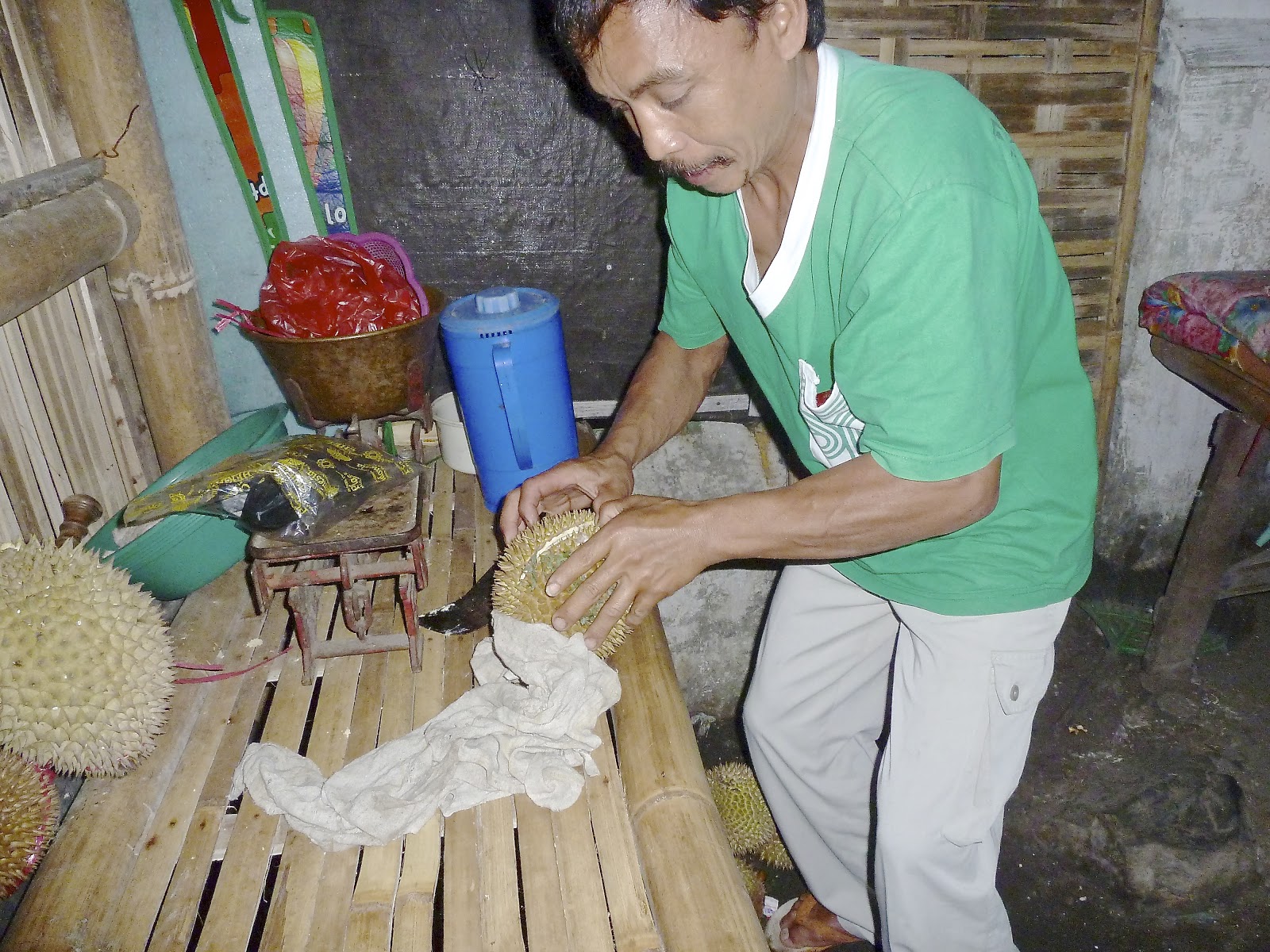Mount Bromo (2392 m) is an active
volcano and one of the most touristed sites in East Java. The reason is its
dramatic setting. Rising up from the Tengger caldera, the mountain is flanked
by three other volcanoes including Semeru, Java’s highest peak (3676 m). In
addition, Bromo sits in a “sea” of volcanic sand several miles in diameter
called Laotian Pasir (Sand Sea). The resulting
landscape is other-wordly and the vistas are pretty awesome. The local people,
known as Tenggers, ride horses around and sell visitors rides across the crater
bed. There is also a Hindu temple at the base of Bromo. The Tenggers, who are
Hindu, have a ritual of throwing flowers, chickens, vegetables and money
into the volcano once a year as a sacrifice to the volcano.
I
visited Bromo last weekend the way most people do. Rise up at 3 a.m. for a
coffee and fried banana; the jeep ride to a neighboring peak to be there at
sunrise in the hopes of catching an incredible view of everything described
above (we saw only fog); a jeep ride into the Sand Sea; then, the pilgrimage up
the sandy approach to the volcano before the final 253 steps which leave you at
the lip of the crater.
 |
| The dawn photo that we missed. I bet this was taken in dry season. Bromo is in the foreground. (From Wikipedia) |
And
then you are there --- staring into the steaming, sulfurous heart of the
volcano. The edge is very narrow and the railing is broken in most places. With
the stiff wind that is common early in the day, I’m amazed more tourists are
not sacrificed to Bromo.
 |
| Not a great shot, but note stiff wind and no railing. Watch your step! |
 |
| Staring into the crater |
The
area around the Bromo-Tengerr-Sumuru National Park is lush and green. My guide
for the weekend, Taufiq, took me and our driver on a quick hike to a local waterfall, which
was lovely.
We parked his car at the home of his uncle, and on our return from our hike, his uncle invited us in for coffee. We removed our shoes and sat in the typically Javan front sitting room, where Uncle Tiq served coffee and bread. He was dressed in a green and white sarong, a green polo shirt, and a white songkok or peci, a woven cap worn by many Muslim men in Indonesia. Taufiq mentioned that I like durian fruit and had noticed some roadside stands selling local durian. Uncle Tiq said he had a friend who sells the best and immediately began punching his cell phone. A quick motorcycle ride with Taufiq and a few minutes later we were at the stand making the purchase (at a “friend’s price”).
 |
| Durian seller prepares taste test, to make sure we're happy. |
We took the durian back to Uncle Tiq’s for a snack. Taufiq mentioned that
this home was very old and had been in the family for generations. I was
invited to see the kitchen where Taufiq’s aunt was working. The room was only
partially closed in from the elements. There was a pit with burning wood and a
grill over it used for most cooking chores. Decidedly old school.
After a
bit more conversation and translations, Taufiq said that his aunt was preparing
some food and we were invited to stay for dinner. “Your choice of course, but
my aunt is a good cook, better than the hotel. She is preparing three different
kinds of rice, which is special for you.” I said I would be honored. In a few
more minutes we were served a great meal consisting of said three kinds of rice
--- local rice, Javanese rice, and rice with corn ---- fried fish, tempeh,
tofu, and greens. It was delicious. For a special treat at the end of the meal,
Uncle Tiq brought out an unmarked bottle of wild jungle honey. I had a spoonful
and freaked over it; so good! Uncle Tiq smiled and insisted I help myself to
some more.
I
thanked the couple and complimented Bu on her cooking. After a bit more
conversation and a photo moment (see below) we took our leave. I enjoyed
this experience so much. What strikes me in retrospect is how easy and
comfortable it was, despite the language barrier. This is genuine, easy-going hospitality which is so
much a part of Javan culture.
 |
| A really enjoyable visit with these warm people. Unfortunately for my photo, Pak Tiq had changed out of his more traditional clothing. |

No comments:
Post a Comment